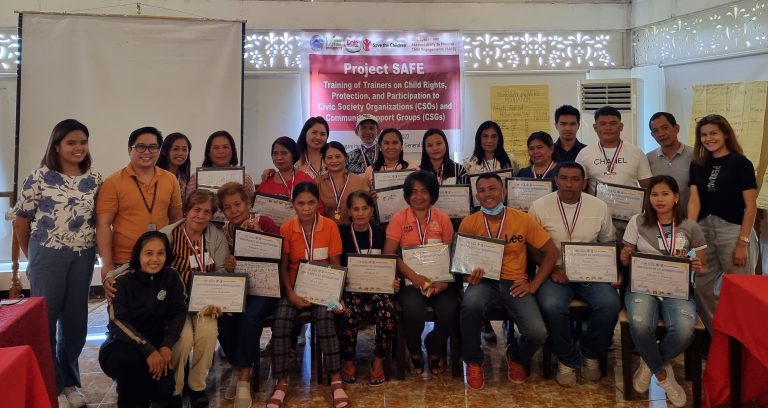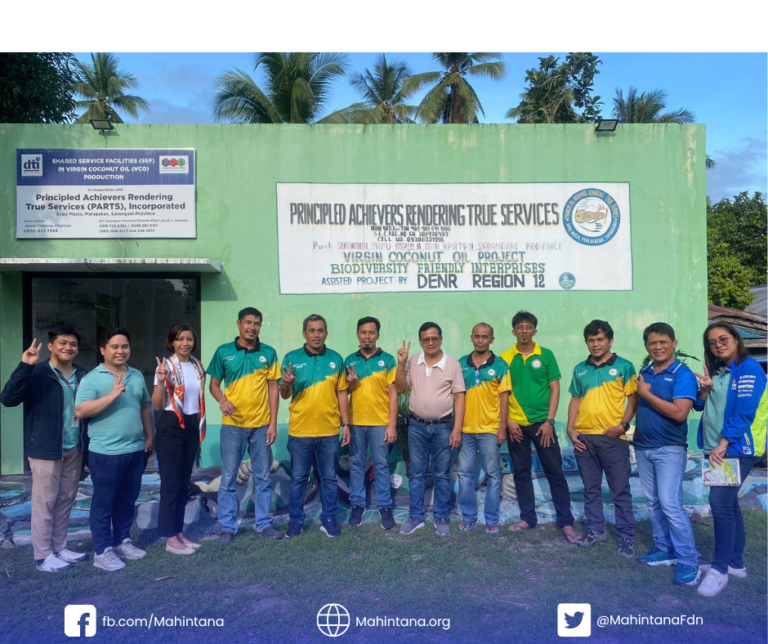Under the South-Eastern Philippines Health and Economic Alternatives (HEAL) Project funded by the European Union (EU), Mahintana Foundation, Inc. (MFI), together with its five (5) implementing partners namely, Allah Valley Development Foundation, Inc. (AVDFI), Maguindanaon Development Foundation, Inc. (MDFI), OND-Hesed Foundation, Inc., Sta. Cruz Mission School, Inc. (SCMSI), and Tribal Leaders Development Foundation, Inc. (TLDFI), conducted a 2-day Year-End Review and Planning Workshop at Grand Men Seng Hotel, Davao City last 26-27 January 2011. A total of 32 participants took part in the activities, comprising of Project Coordinators, Project Officers, Bookkeepers, and seven (7) Municipal/City Health Officers (MHO)/(CHO), who were invited from the partners’ respective Rural Health Units (RHU) to provide feedback, insights, and recommendations in the improvement of project performance.
The activity aimed to evaluate HEAL project’s Year 1 and 2 performance on implementation and fund utilization, comparing accomplishments against targets. It also aimed to develop updated action and financial plans for Year 3 and finalize the Annual Interim Narrative Report for submission to EU. The workshop was conducted using participatory and experiential approach, utilizing methodologies such as plenary, open forum, group discussions, and sharing sessions, where outputs were built on the participants’ knowledge and experiences.
In his welcome remarks, Mr. Martiniano L. Magdolot, HEAL Project Director, encouraged the Project Implementation Team (PIT) to suggest activities that could be integrated in the Year 3 work plan, which would help in developing communities beyond the project’s deliverables; to have a dynamic interaction, optimizing the presence of MHOs/CHO; and to take the venue as an opportunity in forging stronger public-private partnerships with local government units (LGU), as represented by MHOs/CHO, in pursuit of activities that would bind, complement, and support government programs.
Output of day 1 include presentation of the following by Mr. Jobe C. Tubigon, HEAL Project Manager: Project targets based on results indicators of the logical framework; Year 2 Project Implementation Plan (PIP)/work plan; and Year 1 and 2 consolidated project accomplishments versus targets. On financials, Ms. Meryl D. Demasuay, HEAL Admin and Finance, presented the consolidated Budget Performance Report (BPR) of Year 2 and the accumulated Year 1 and 2.
Based on the discussion of facilitating and hindering factors, which contributed to the implementation and fund utilization, one of the best practices observed in obtaining progress updates, clarification of concerns, and finding solutions to problems encountered, was the regular conduct of consultation and coordination meetings between the PIT and the RHU. This recommendation was built on RHU Lake Sebu’s experience with partner organizations AVDFI, OND-Hesed, and SCMSI, which has facilitated implementation of complementing activities of both parties.
Day 2 output include formulation and presentation of Year 3 work and financial plans by each implementing organization, together with their MHOs/CHO. Plans were formulated with reference to the cumulative recommendations of facilitating and hindering factors and the Year 3 approved budget. Though encouraged to suggest as many activities as possible, with inputs coming from the MHOs/CHO who knew the health needs of communities in their areas, participants were reminded that these would still be subject for EU approval. Suggestions include Celebration of Buntis Congress; RHU outreach clinic (RHU on wheels); distribution of medical equipments, basic medicines, and supplements; construction of halfway houses/birthing facilities with food; Nutrition month celebration; conduct of family planning (FP) methods in the community such as bilateral tubal ligation (BTL) and Vasectomy; and training on Community-led Total Sanitation (CLTS) program.
The 2-day workshop ended with sharing of impressions from selected participants, who thanked Mahintana and EU for having the HEAL project, which enabled them not only to be part in the implementation of activities but which also served as an avenue for personality development and skills enhancement. Sr. Susan O. Bolanio, OND, Executive Directress of OND-Hesed, on the other hand, was happy with the attendance of MHOs/CHO, representing the LGU, and was hopeful for a Year 4 for the project.
Mr. Magdolot formally closed the activity by thanking everyone for their presence and participation, commending Project Officers and Bookkeepers for a successful performance of Year 2, with reminders emphasizing on religiously following grant schedule in the implementation of activities. He added that the team would again meet for a follow up activity on 22 February 2011 at the East Asia Royale Hotel, General Santos City, joined by the Delegation of the European Union (EU) to the Philippines. Lastly, he encouraged everyone to look at accomplishments not in terms of ‘trees’ but of ‘forest,’ the latter signifying HEAL’s interventions, which when collectively implemented, would provide greater and better impact in the lives of beneficiaries.



